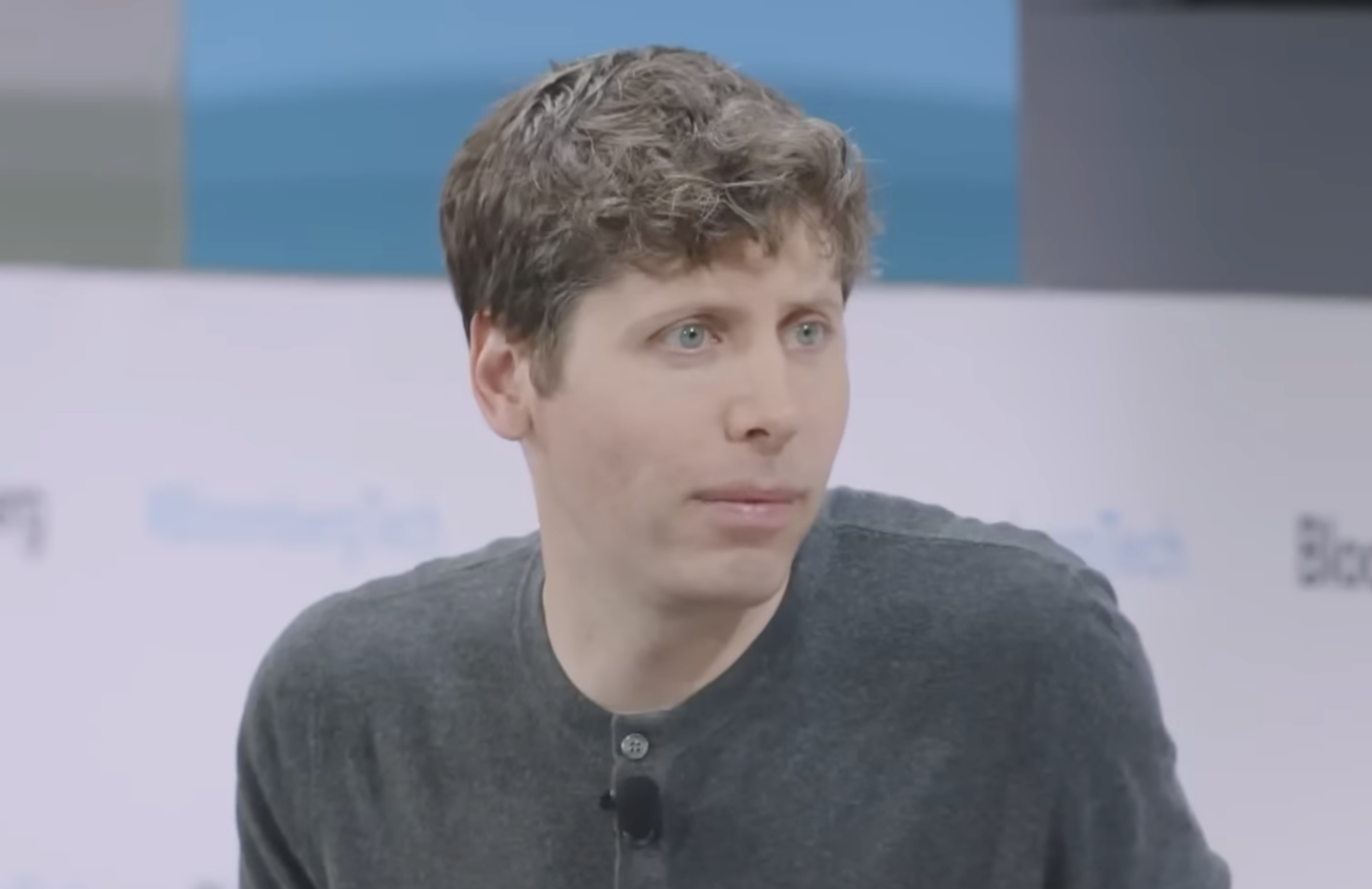Sam Altman, CEO of FDC OpenAI, has generated considerable interest in generative AI; however, he cautioned attendants of Intel's Foundry Direct Connect (FDC) event on Wednesday that not all information on the internet is reliable.
Sam Altman Clarifies AI Development Costs, Stresses Strategic Approach Amid Speculation
During a fireside conversation with Intel CEO Pat Gelsinger, Altman refuted rumors that he was attempting to raise between $5 and $7 trillion to construct a network of chip fabrication facilities and the supporting infrastructure.
"If I had to sit there and correct every mistaken report, I would not be able to do my job, but people say all sorts of things," Altman said.
Unsurprisingly, the allegation, reported in a The Register article that cited unidentified sources, garnered considerable attention. Nevertheless, numerous individuals, including this modest vulture, promptly noted the magnitude of $7 trillion compared to the complete semiconductor sector.
Although Altman's AI aspirations may not necessitate such a substantial amount, he underscored that it is likely considerably more than individuals anticipate. "I think everybody is underestimating the need for a lot of AI computing," he added.
Altman hesitated to specify precisely how many fabs that correspond to.
Altman explained, "I expect the market for AI compute to be a different kind of good. It's more like energy, where there's a certain amount of demand at some price, and less at a higher price."
The cost of artificial intelligence could be reduced to an absurd degree with sufficient capacity; however, this will necessitate enormous investments in fabrication facilities, accelerators, and data centers to house them and in renewable energy to power them.
"Certainly the most expensive of all, there's the energy it's going to take to power those," he said.
Considering his investments in alternative energy sources, including fission and fusion nuclear reactor technology, Altman's emphasis on power is hardly surprising.
Sam Altman Advocates for Cautious AI Development Amid Potential Sci-Fi Risks
Besides necessitating an enormous amount of computing power and computation, Altman cautioned that the future of AI development will be chaotic, and that should take time with it.
His statement continued, "There's obviously a huge amount of understandable anxiety, but exactly what people are going to do, what the right approach is going to be… I'm happy it's happening now."
Altman elaborated that OpenAI's approach to AI development has been influenced by this, citing the organization's "iterative deployment" strategy.
"What you shouldn't want, I think, is OpenAI to go build artificial general intelligence in secret in a basement and then push a button, like drop it on the world all at once," Altman said. "What you want is a very embarrassing GPT-4, slightly less embarrassing GPT-5, pretty good GPT-6, GPT-7."
He posited that this methodology allows adapting to the progressive capabilities of AI and detect possible drawbacks. Furthermore, as Altman asserts, there are many hazards to behold.
"There are all the sci-fi risks. I think those are actually really super important," he added. "You can imagine what a tool like GPT-plus-plus-plus can do in the hands of someone who wants to cause harm. And you can imagine the unintended consequences of a system like that. People have been making movies about it for a long time."
Altman foresees immediate ramifications for elections, cybersecurity, and bioterrorism, all of which, in his opinion, will necessitate meticulous deliberation to alleviate. He further asserts that governments and institutions must actively participate in this matter. Several OpenAI contributors provided recommendations on this subject in a recent report.
Altman acknowledged the potential adverse effects of AI, but he remains convinced that the technology will ultimately serve as a positive influence.
"When we zoom out and look at if we think the future is going to be a lot better or a lot worse on the whole, I think it's going to be a lot better," he said. "In fact, I think it's hard to imagine how much better it's going to be."
It is dubious whether the employees who AI supplants will share this sentiment.



 SpaceX Seeks FCC Approval for Massive Solar-Powered Satellite Network to Support AI Data Centers
SpaceX Seeks FCC Approval for Massive Solar-Powered Satellite Network to Support AI Data Centers  Instagram Outage Disrupts Thousands of U.S. Users
Instagram Outage Disrupts Thousands of U.S. Users  Alphabet’s Massive AI Spending Surge Signals Confidence in Google’s Growth Engine
Alphabet’s Massive AI Spending Surge Signals Confidence in Google’s Growth Engine  Nintendo Shares Slide After Earnings Miss Raises Switch 2 Margin Concerns
Nintendo Shares Slide After Earnings Miss Raises Switch 2 Margin Concerns  Tencent Shares Slide After WeChat Restricts YuanBao AI Promotional Links
Tencent Shares Slide After WeChat Restricts YuanBao AI Promotional Links  SoftBank Shares Slide After Arm Earnings Miss Fuels Tech Stock Sell-Off
SoftBank Shares Slide After Arm Earnings Miss Fuels Tech Stock Sell-Off  OpenAI Expands Enterprise AI Strategy With Major Hiring Push Ahead of New Business Offering
OpenAI Expands Enterprise AI Strategy With Major Hiring Push Ahead of New Business Offering  Baidu Approves $5 Billion Share Buyback and Plans First-Ever Dividend in 2026
Baidu Approves $5 Billion Share Buyback and Plans First-Ever Dividend in 2026  Jensen Huang Urges Taiwan Suppliers to Boost AI Chip Production Amid Surging Demand
Jensen Huang Urges Taiwan Suppliers to Boost AI Chip Production Amid Surging Demand  Nvidia, ByteDance, and the U.S.-China AI Chip Standoff Over H200 Exports
Nvidia, ByteDance, and the U.S.-China AI Chip Standoff Over H200 Exports  TSMC Eyes 3nm Chip Production in Japan with $17 Billion Kumamoto Investment
TSMC Eyes 3nm Chip Production in Japan with $17 Billion Kumamoto Investment  Oracle Plans $45–$50 Billion Funding Push in 2026 to Expand Cloud and AI Infrastructure
Oracle Plans $45–$50 Billion Funding Push in 2026 to Expand Cloud and AI Infrastructure  Nvidia Nears $20 Billion OpenAI Investment as AI Funding Race Intensifies
Nvidia Nears $20 Billion OpenAI Investment as AI Funding Race Intensifies  Global PC Makers Eye Chinese Memory Chip Suppliers Amid Ongoing Supply Crunch
Global PC Makers Eye Chinese Memory Chip Suppliers Amid Ongoing Supply Crunch 































